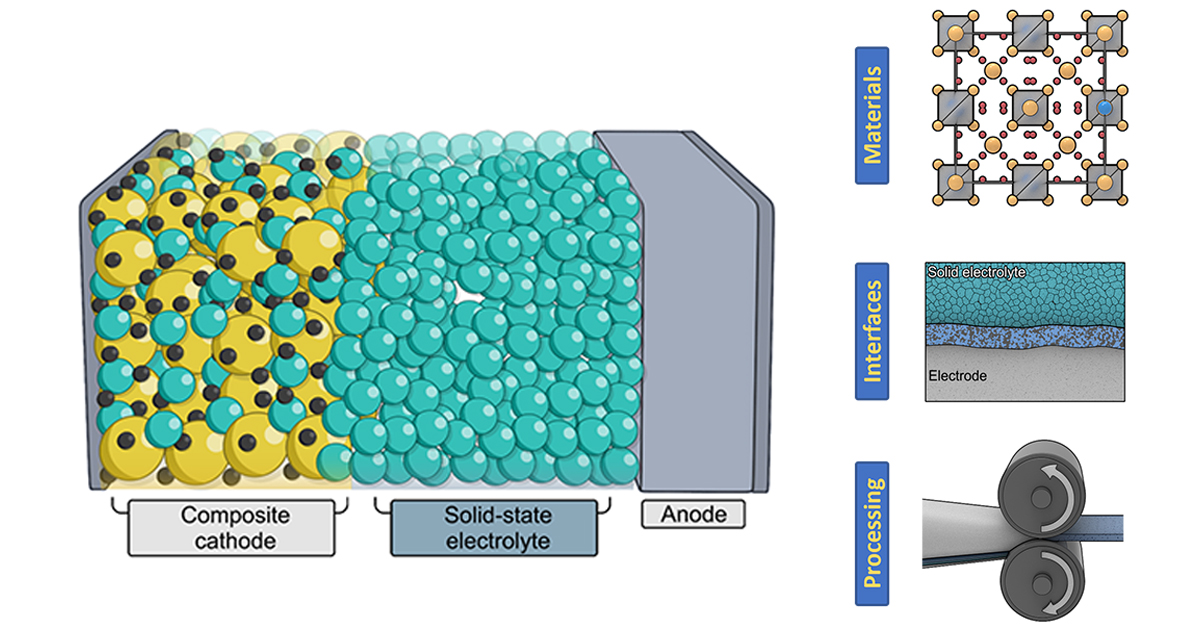All-Solid-State Batteries: State of the Art and Challenges for Materials, Interfaces and Processing
A special issue of Batteries (ISSN 2313-0105). This special issue belongs to the section "Battery Materials and Interfaces: Anode, Cathode, Separators and Electrolytes or Others".
Deadline for manuscript submissions: 31 March 2026 | Viewed by 120

Special Issue Editors
Interests: batteries
Special Issue Information
Dear Colleagues,
The increasing demand for electric vehicles has accelerated the development of next-generation batteries with higher energy density and improved safety. All-solid-state batteries (ASSBs) are emerging as a promising solution, offering significant advantages over traditional liquid electrolytes. Solid-state electrolytes (SSEs) are less flammable, possess higher lithium-ion transference numbers, and exhibit high mechanical strength. These features contribute to enhanced safety, increased energy density, and a longer cycle life.
This Special Issue seeks to provide a comprehensive overview of the latest advancements and ongoing challenges in the field of all-solid-state batteries. Focusing on materials development, interfacial engineering, and advanced processing techniques, this issue aims to highlight innovative solutions and emerging trends that can propel the next generation of high-performance, safe, and durable ASSBs for electric vehicles and other applications. This aligns with the journal’s scope in showcasing cutting-edge research that advances battery technology and energy storage solutions.
We invite original research articles and reviews covering areas such as the following:
- Development of novel solid electrolyte materials with high ionic conductivity and stability;
- Interface engineering to improve compatibility between electrolytes and electrodes;
- Advanced fabrication methods, including thin-film deposition and scalable manufacturing;
- Innovative characterization techniques for material and interface analysis;
- Computational modeling of mechanical and electrochemical behaviors;
- Strategies to mitigate lithium dendrite growth;
- Enhancements in durability, cycle life, energy density, and power optimization.
We look forward to your contributions and collaborations in advancing the field of all-solid-state batteries.
Dr. Zeyi Wang
Dr. Han Su
Guest Editors
Manuscript Submission Information
Manuscripts should be submitted online at www.mdpi.com by registering and logging in to this website. Once you are registered, click here to go to the submission form. Manuscripts can be submitted until the deadline. All submissions that pass pre-check are peer-reviewed. Accepted papers will be published continuously in the journal (as soon as accepted) and will be listed together on the special issue website. Research articles, review articles as well as short communications are invited. For planned papers, a title and short abstract (about 100 words) can be sent to the Editorial Office for announcement on this website.
Submitted manuscripts should not have been published previously, nor be under consideration for publication elsewhere (except conference proceedings papers). All manuscripts are thoroughly refereed through a single-blind peer-review process. A guide for authors and other relevant information for submission of manuscripts is available on the Instructions for Authors page. Batteries is an international peer-reviewed open access monthly journal published by MDPI.
Please visit the Instructions for Authors page before submitting a manuscript. The Article Processing Charge (APC) for publication in this open access journal is 2700 CHF (Swiss Francs). Submitted papers should be well formatted and use good English. Authors may use MDPI's English editing service prior to publication or during author revisions.
Keywords
- all-solid-state batteries
- interface engineering
- solid-state electrolytes
- advanced fabrication
- characterization techniques
- computational modeling
- lithium dendrite
Benefits of Publishing in a Special Issue
- Ease of navigation: Grouping papers by topic helps scholars navigate broad scope journals more efficiently.
- Greater discoverability: Special Issues support the reach and impact of scientific research. Articles in Special Issues are more discoverable and cited more frequently.
- Expansion of research network: Special Issues facilitate connections among authors, fostering scientific collaborations.
- External promotion: Articles in Special Issues are often promoted through the journal's social media, increasing their visibility.
- Reprint: MDPI Books provides the opportunity to republish successful Special Issues in book format, both online and in print.
Further information on MDPI's Special Issue policies can be found here.






